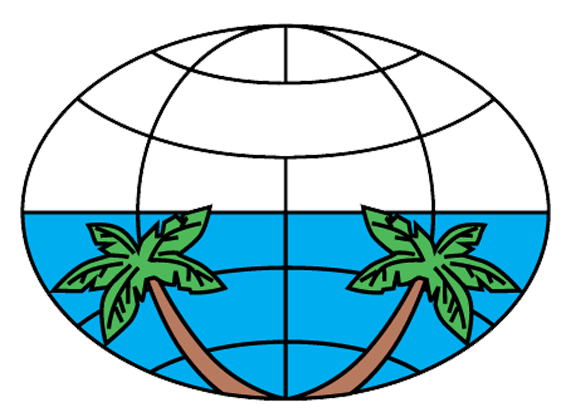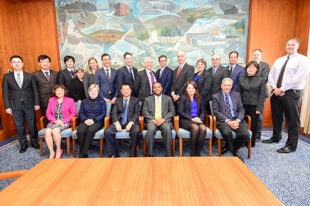How the CIAO Successfully Engaged Stakeholders to Address Audit Effectiveness, Efficiency
It was the type of newspaper coverage most Supreme Audit Institutions (SAI) would dread.
“Unaudited Accounts Cause Issues,” declared a September 2018 Cook Island News headline.
The article, which went on to detail how the Cook Islands has a backlog of unaudited public accounts that could “potentially give the country a bad financial rating,” was sparked by a statement during a national Public Accounts Committee (PAC) induction workshop.
The statement called into question the Cook Islands Audit Office’s (CIAO) role in reporting to the PAC and its ability to hold the government accountable and piqued stakeholder interest (including the national media), who now wanted to know, “Where are the reports? Why is there a backlog?”
Quick on the heels of the original news story, CIAO Director of Audit, Allen Parker, addressed these questions. In an article appearing in the same news outlet four days later, Parker explained how two technical auditing practices were primarily behind the shortcomings.
First, the Cook Islands is one of few small countries in the Pacific region to have adopted full accrual accounting (most employ cash accounting or modified cash accounting methods when preparing public accounts).
The second, and perhaps more far-reaching explanation, stems from the consolidation of all government entities, including State Owned Entities (SOE), into the whole of government accounts to provide a more informative set of Financial Statements of Government (FSG) accounts.
This approach, which requires the CIAO to individually audit financial statements of each government entity, SOE and government parent prior to incorporation into the government’s financial statements, proved quite challenging on a number of fronts.
To begin with, parliament sittings (where reports are tabled) had been irregular, and for three years (2014-2016), roughly 65% of government entities were well behind the recommended six-month time frame in providing financial statements to the audit office.
Parker clarified that the CIAO could not perform the whole of government account audit until 44 individual government entities and three SOEs (47 in total) are completed. A further challenge is the timely preparation and availability of auditable consolidated financial statements from the Ministry of Finance and Economic Management (MFEM).
The CIAO is a member of the Pacific Association of Supreme Audit Institutions (PASAI), and the PASAI Chief Executive has, over the past few years, focused on monitoring backlogs of FSG accounts, particularly for the smaller island states within the region.
This emphasis coincides with PASAI’s strategic priorities to achieve timely and effective audits; provide regional capacity building programs; and deliver technical support through cooperative regional approaches, such as the Sub-Regional Audit Support (SAS) program.
PASAI, with assistance from the European Union, will supply additional support over the next two years to the region’s SAIs still facing hefty backlogs with designs on ensuring all SAIs in the Pacific are up-to-date with auditing FSGs by 2024—an ambitious, but achievable, goal.
For most SAIs, the initial phase of auditing core government entities to clear backlogs will be followed by a second phase (auditing SOEs). For the CIAO, the two phases have occurred simultaneously.
The CIAO has, in fact, achieved timely and effective audits by devoting its limited resources to reducing the number of unaudited financial statements for government entities and SOEs. The CIAO also established a plan that included completing the 2014-2016 FSG statements by June 30, 2019. It is supported in this process by New Zealand’s Office of the Auditor General—the CIAO’s twinning partner.
That said, several key developments have emerged from this very open, very visible engagement with stakeholders—PAC support and contributions to audit effectiveness and efficiency; increased SAI visibility, transparency and accountability; and a broader discussion on accounting practices.
PAC Support and Contributions to Audit Effectiveness and Efficiency
Parker has always believed the MFEM proved itself willing to share information on government spending. Legislative changes will enhance this position. These changes include ensuring audit reports are available to the public upon submission to the Speaker, thus negating the need for parliament to be in session.
The PAC has also passed a resolution enabling the CIAO to identify agencies not in compliance with audit requirements, and PAC Chairman, Tingika Elikana, believes timely information will lead to better-informed decisions by the PAC and government and greater accountability for all entities.
SAI Visibility, Transparency and Accountability Through Media, Communication
The public debate allowed the CIAO to describe its work and obstacles to efficiency—to the government, the PAC and the nation’s citizens. Proactive, clear and objective messaging allowed the SAI to compellingly and concisely clarify complex, and potentially inflammatory, government issues. This clarity and openness speaks to the CIAO’s determination to be transparent and inclusive.
“A key part of our strategic plan includes stakeholder engagement. While many of our objectives in this area are in draft form, we have already commenced with establishing a process to discuss our audit reports with the PAC and, of course, the media.”
Broader Discussion on Accounting Practices
This dialogue also allowed the CIAO to raise citizen awareness about national accounting practices, as well as FSG and the whole of government approaches to the scrutiny of accounts.
The Cook Islands experience is similar to that of other SAIs. The timely completion of accounts remains a national issue—one critical to an audit organization’s strategic planning efforts, especially in developing and maintaining necessary capacity, capability and resourcing to prepare staff for challenges (such as transitioning to auditing accrual-based and fully consolidated accounts).
For Parker, the dialogue has already led to demonstrable improvements in auditing practices.
“It is satisfying to note that 90% of our audits were completed within six months of receipt for the 2017 financial statements,” he noted.
For the Cook Islands, the discussion, hopefully, ceases the notion that the country is threatened by poor financial ratings.
For SAIs worldwide, the debate, perhaps, illustrates an ability to overcome, and capitalize on, seemingly negative news.
In this instance, a negative headline provided a stage for proactive, positive stakeholder engagement, and the ensuing inquiries allowed the SAI to be open about current failures and equally open (and optimistic) about future successes.
News Story Links
“Unaudited Accounts Raise Issues” by Rashneel Kumar, Cook Island News, September 15, 2018.
“Audit Office Explains Delays” by Rashneel Kumar, Cook Island News, September 19, 2018.
“PAC Crackdown on Ministries” by Rashneel Kumar, Cook Island News, February 1, 2019.
Emphasis on Stakeholder Engagement, Audit Quality Reflected Across the PASAI Region
The importance of stakeholder engagement, which is vital to audit impact and quality, is reflected across the PASAI region in SAI communication strategies. As recently as May 2019, Fiji’s Auditor General, Ajay Nand, engaged with local media to raise awareness on the lack of action taken against government departments, statutory bodies and councils (provincial and municipal) that do not submit draft financial statements on time.
In the article, “Auditor General Calls for Sterner Action on Non-Compliance,” published by the Fiji Broadcasting Commission, Nand demonstrates how employing media can enhance transparency, accountability and inclusion.
Click here to access the pdf version






